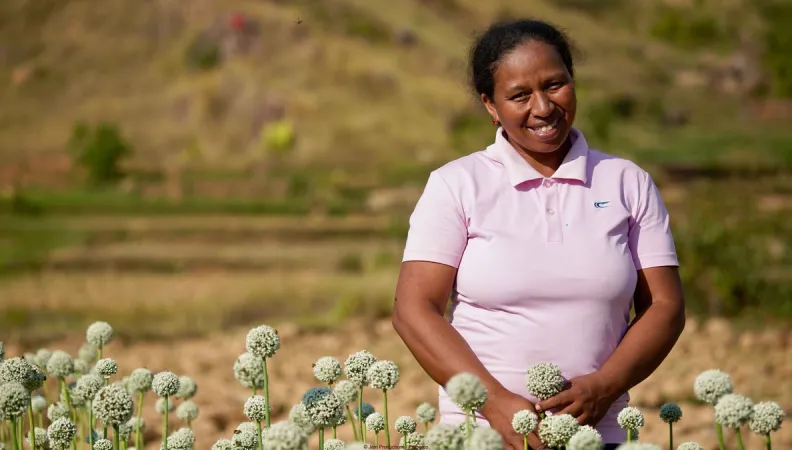Share the page
Promoting gender equality in the Indian Ocean region through education, employment, and health
Published on

Equal access to job opportunities, combating violence – in the Indian Ocean region, AFD Group supports a wide range of projects promoting women’s rights.
In the Indian Ocean region, women and girls continue to face socio-economic and cultural barriers, along with heightened exposure to climate, health, and economic crises. In these particularly vulnerable island territories, ensuring their access to basic services, resources, economic opportunities, and civic and political participation is essential to strengthening community resilience.
Deeply-rooted inequalities that persist today
Women and girls are met with significant structural inequalities in both the public and private spheres, and across all sectors of activity:
- Enduring wage gaps: on average, women earn 15 to 20% less than men working in similar positions, and this disparity is even starker in rural areas.
- Female-dominated but precarious sectors: women are particularly over-represented in the care sector*, where positions are often part-time or poorly paid, with a lack of job security.
- Limited access to productive resources: in Madagascar and the Comoros, women have few land ownership rights, despite playing an essential role in the farming sector.
To address these challenges, and in line with France’s International Strategy for a Feminist Foreign Policy (2025-2030), AFD systematically incorporates gender equality and women's empowerment into its projects and evaluates their impact.
AFD Champions Feminist Development
A transformative feminist approach
The first regional project to specifically target development of the Cultural and Creative Industries (CCIs) in the Indian Ocean region, the "IOC CCI" project, financed by AFD and implemented by the Indian Ocean Commission (IOC), has adopted a transformative feminist methodology and approach. The goal is to ensure equitable access to professional opportunities and funding for artists and cultural operators, while focusing specifically on women.
"When I'm here, I see potential, energy and a real and urgent need to connect with each other. It makes us want to build on what we have in common to form even stronger bonds," says Cécile Fontaine, a participant in the regional cultural management training.
In 2025, with the project at its halfway point, 56% of the beneficiaries are women. This can be put down to an approach that incorporates intersectional issues and prioritizes initiatives which advance gender equality and economic independence, while tackling gender-based violence.
See also: AFD and the Three Oceans
Reducing multidimensional social inequalities
AFD Group is working to empower women at the regional level. Launched in 2024 and implemented by Expertise France in the Comoros, Madagascar, and Mauritius, the Lumin’îles project aims to restructure the care sector and combat gender-based violence in the workplace, while engaging in public policy dialogue with national authorities.
In Madagascar, the Aintsoa project, implemented by GRET and the social enterprise Nutri'zaza, is working to prevent malnutrition and reduce health and social inequalities in urban areas. The project is helping to improve the health of local communities, while also empowering both men and women to become agents and beneficiaries of change.
As a result, between 2022 and 2024, over 42,000 people attended awareness sessions on gender inequalities in nutrition and women's specific nutritional requirements.
"To ensure that our communications are inclusive and equitable, whether targeting the general public, specific groups, or individuals, we felt it was important to involve men who are part of a couple in the various awareness-raising sessions on healthy dietary and nutritional practices. This approach has helped to maximize the impact of our actions and promote a more just and egalitarian society," says Fanja Rasoamiadana, Social Communications Manager for Gret in Madagascar.
Integrated actions across all sectors
AFD incorporates these key issues into all its fields of action in the Indian Ocean region. Consequently, the Caribus project in Mayotte is working to meet women's specific needs in sustainable transport. The regional private sector organization Cap Business Océan Indien helps businesses to address professional inequalities in their sustainable transitions, and the Indian Ocean Commission's Recos project is driving equitable inclusion in the management of coastal ecosystems.
These are just a few of the initiatives that reflect a growing and far-reaching effort to advance women's rights and gender equality, with a view to building a fairer and more sustainable future in the region.
